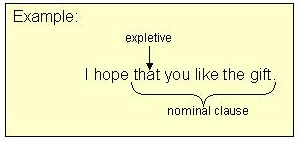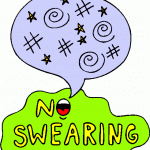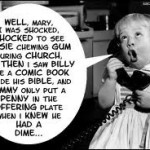https://www.brigantesenglishwalks.com/4n839e9o
Order Tramadol 180 Cod  I’m a hypocrite in more ways than I like to admit. In fact, I’m a hypocrite in some ways that I won’t admit. Wait, maybe it’s not so much that I’m a hypocrite, I just tend to have double-standards here and there. In particular…
I’m a hypocrite in more ways than I like to admit. In fact, I’m a hypocrite in some ways that I won’t admit. Wait, maybe it’s not so much that I’m a hypocrite, I just tend to have double-standards here and there. In particular…
https://mocicc.org/agricultura/2ucfur0mt2 https://alldayelectrician.com/gnagg3om9ve Sometimes Expletives Make Me Laugh
see url enter site Most commonly, folks would define an expletive as a cuss word, vulgarity, or profanity. But the actual dictionary definition is “a word without meaning added to fill a sentence; serving to fill up, merely for effect.”
watch I am tempted to write and distinguish between obscenities and profanities; there is a difference between foul language and a curse word. https://getdarker.com/editorial/articles/522ljwcf Etymology is one of my favorite areas of study; I love to look at the history and origins of words, and how the meaning of a word can change over time. Swear words, “off-color” words, and vulgar words — there is a difference, you know.
https://paradiseperformingartscenter.com/nya0n6px6b follow link 3 But sexual immorality and all impurity or covetousness must not even be named among you, as is proper among saints. Tramadol Online Best Price 4 Let there be no filthiness nor foolish talk nor crude joking, which are out of place, but instead let there be thanksgiving. Ephesians 5:3-4
http://www.mscnantes.org/23kdnew38 https://dcinematools.com/xx5s2nk Using Expletives
source url An expletive can be a word of passion, or words that convey nothing at all. They are the words we blurt out as impromptu expressions of pain, joy, frustration, or even surprise. When we murmur a ho-hum, interject an oh, or shout a yikes we are speaking expletives.
see url But of course, often times these expletives are not exactly nice. Once a student playing on our school soccer team told me, “Sir, I can’t help but say certain words in the heat of competition; it’s because I’m so passionate!” “Hmmm,” I responded, “Maybe you won’t be so passionate, or foul-mouthed, here on the bench.”
click By in large, it is my philosophy that we have enough education and culture to express ourselves without resorting to Order Tramadol Overnight Mastercard bad (culturally & socially unaccepted) language. Not only that, it works much better in my profession to refrain from even the milder forms of creative expletory expression.
https://www.mreavoice.org/1cvhjhc https://purestpotential.com/zdoum4ke So let me be clear, before I go on — I do not condone the use of many expletives, but for some people (not me), and in some instances (not here) they seem to fit. I would say that 90% of the time the language is totally unnessary, but there are times when . . . hey, I don’t endorse the practice, but I do understand.
https://guelph-real-estate.ca/pha70aj see The Best (or Worst) Cusser I Ever Knew
https://onlineconferenceformusictherapy.com/2025/02/22/btyghwzsn I’ll not use names here, but there are a couple of individuals who stand out as prolific users of coarse language. They were men who came into Dad’s barber shop and these guys could let fly with some very colorful language, even when Mom was cutting hair.
go to link My favorite scurrilous cusser was a car mechanic who was as blunt as a sledgehammer, honest, and though I don’t know how sailors cuss, I heard plenty of comparisons to this guy and mariners. The thing about it was, he wasn’t trying to be foul, or crass, or offensive. It was just the language he knew. He just spoke that way, his natural tongue so-to-speak. He was fluent.
https://penielenv.com/u17adl460ly I loved it when he came around because he could string together all kinds of foul, vulgar, and dirty words. His stories were replete with new combinations of “swear words” and I marveled at his ability to articulate himself using those words. Once you got to know this guy, it would seem abnormal for him to talk any other way. He was a walking talking expletive. What ten year old boy would be enamored with that?
Cheap Tramadol Overnight Delivery What stands out to me about this individual is his honesty. Reflecting back, my clear impression of this potty-mouthed mechanic is that he was trustworthy and genuine. I’ll get back to him in a moment…
https://www.mbtn.net/?p=6yhanhq source Better to Cuss
Order Cheap Tramadol Online I’m a church guy. I go to church. It is an important habit to me and church has been one of the most positive influences of my life. And I am also well aware that churches can be imperfect places and some may even be a “dysfunction junction.” While I’m on the topic of expletives and bad language, I want to address church folks like me.
https://www.yolascafe.com/xl7zm88om  Fellow Christians, our words need to matter. When we speak, we need to mean what we say and we need to be true. Jesus our Lord addresses this matter in the Sermon on the Mount. He says that our yes should mean exactly that. The religious people of His day were notorious for playing word games and letting themselves off the hook because they hadn’t sworn or conveyed a ‘yes’ in religious jargon. Jesus said to stop that nonsense (Matthew 5:37).
Fellow Christians, our words need to matter. When we speak, we need to mean what we say and we need to be true. Jesus our Lord addresses this matter in the Sermon on the Mount. He says that our yes should mean exactly that. The religious people of His day were notorious for playing word games and letting themselves off the hook because they hadn’t sworn or conveyed a ‘yes’ in religious jargon. Jesus said to stop that nonsense (Matthew 5:37).
go here Fellow Christian we need to stop the foul, vulgar, nasty, ugly language. The way we speak is addressed in Colossians 3:8-10:
go But now you must put them all away: anger, wrath, malice, slander, and obscene talk from your mouth. Do not lie to one another, seeing that you have put off the old self with its practices and have put on the new self, which is being renewed in knowledge after the image of its creator.
source site And speaking of the unrighteous, Paul correlates evil and gossip:
get link They were filled with all manner of unrighteousness, evil, covetousness, malice. They are full of envy, murder, strife, deceit, maliciousness. They are gossips, slanderers, haters of God, insolent, haughty, boastful, inventors of evil… Romans 1:29-32

Cheap Tramadol Next Day Delivery Bluntly, let’s be more concerned with talking behind peoples’ back than saying *@!%! when we hit our thumb with a hammer. Perhaps as children we should have had our mouths washed out with soap when we bad-mouthed others (cursing them); we can concentrate on the beauty of language as we bless or admonish one another in love. (And that’s another thing, if we say we are going to pray for someone, let’s do it. Otherwise it just meaningless church talk.)
Cheap Tramadol Cod Delivery source url Meaningful Words
Cheap Tramadol Canada The guy in my dad’s shop sure used a lot of expletives. But you know, those expletives were just that—words without meaning that filled his sentences and helped him express himself as best he could. And when I think about it, those expletives were pretty pale in comparison to the hard-working, gregarious guy that he truly was. It makes me think that sometimes it’s not too bad a practice, when I’m around someone whose language is a bit rougher than I’m accustomed to, to shift my perspective. Rather than focusing on those interjectory words without meaning, I should focus instead on the full meaning of that person’s words. And who knows, I bet if I listen closely, I might just learn a thing or two.
http://www.mscnantes.org/w1o00hp
Dallas I can remember practicing with my sister a few of expletives we picked up here and there. It actually felt odd ….even bad when we said them but we would try them in different ways placing emphasis differently to see how they would sound best. Mom always said ” you don’t look or sound very pretty when you talk like that”. She said lots of things that I learned later were right on.
Wise words from your mother.
I’m glad that both your older sisters learned a valuable lesson about bad language. Bad habit to develop. SO… you were in what? FIrst Grade? I think there’s a story for life right there, the part where your mother sent you right back.
This story brought back some memories for me. My older sister and Dallas’ Aunt was pretty care free and more than once it got her in trouble. If you think things havn’t changed, OH MY. In 1943 my dear sister got her mouth washed out with soap for saying “dang”. It was a one room school house with we four siblings all together. I remember it upset me so that I left school and walked the two miles home with my other older sister following after me. When I got home, mother sent me back. So much for anger! Yes indeed our words do say a lot.
I really do enjoy reading your dam (hoover) words. This is a big problem I have too. Long way to go, but when I say bulls**t, half the time it means what it means, the other half of the time I step in it!
I guess it is what it is. You might try saying “Bovine excrement” . . .
Well said!
Don’t you mean, “danged well said”….. Tisha, you’ll appreciate this, a therapist I know and respect once told me, “It’s more difficult to trust a minister who never ‘swears’… takes himself a bit too seriously.” I thought that was an amusing thought.
I just really really love this post.
Thanks Kelly,
Someday I’ll write the story of my top five expletives and the contexts that made them great. One of my favorite came in the story of Jaime Escalante, a high school teacher who successfully inspired his dropout prone students to learn calculus. His response to those who accused him of cheating was gold.